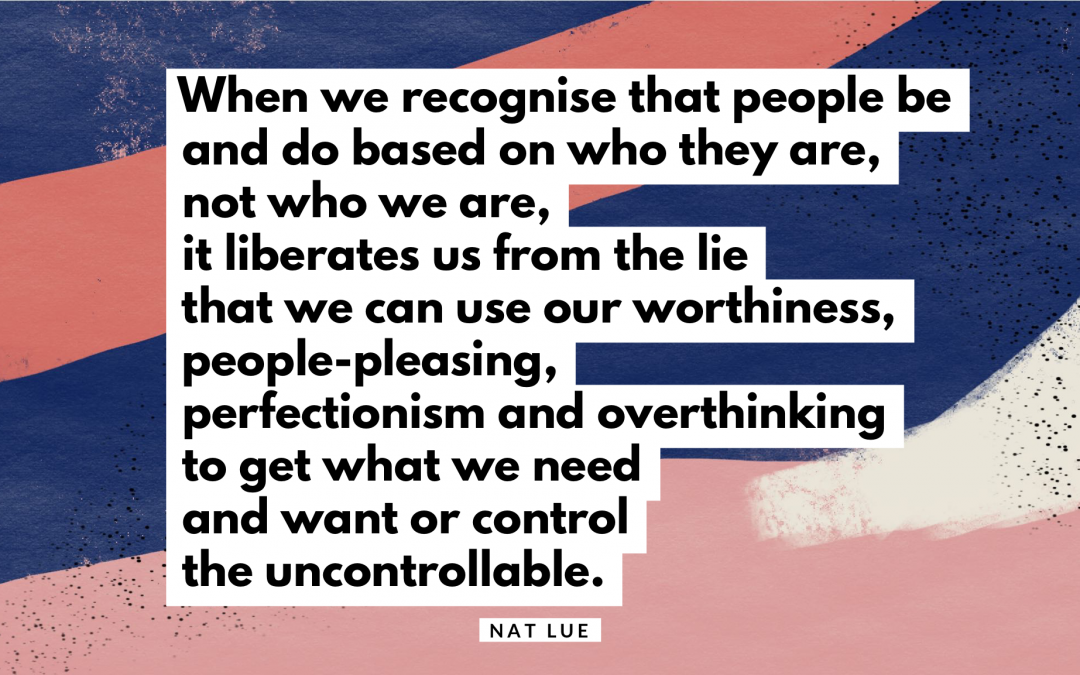Earlier this week, I wrote about why our needs and wants are not about how worthy and deserving we are. In this week’s episode of The Baggage Reclaim Sessions, I break down why blaming our disappointments on our worthiness and deservedness is the fundamental trap in our life.
Subscribe on Apple Podcasts | Spotify | Android
Nuggets From The Episode
- When we perceive life in terms of worthiness and deservedness, people disappointing us or things not going to plan feels deeply unfair. We feel confused, hurt and, yes, sometimes outraged because we don’t feel as if we did something ‘wrong’. We don’t feel as if we deserve what happened.
- Basing everything on whether we’re worthy or deserving means that we can also be inclined to assume that us not getting what we need or want is a sign, proof, in fact, of our inherent unworthiness.
- Blaming things on our worthiness and deservedness is a childlike belief and thought process.
- Our beliefs shape how we show up in our relationships and life. This means that if put everything down to worthiness and deservedness, we’re going into a situation feeling inferior. Or, yes, in some situations, making ourselves superior because of what we think we’re entitled to.
If we’re moving through the world thinking that what is or isn’t happening is based on our worthiness and deservedness, that’s our baggage, not what someone else is being or doing. They’re just communicating who they are.
- As children, we can look at situations and decide that someone else deserves to have their needs met more than we do. We learn to take a back seat even though our needs are just as valid and important.
- Inadequate parenting doesn’t equal inadequate child.
- Our beliefs are reasoning habits. When we haven’t liked the look of something or how it felt, we’ve looked for reasons to explain it. These are our beliefs that have become habitual. e.g. It’s my fault. I’m not good enough. I’m rejectionable.
- Continuing to use these reasoning habits in spite of the truth of what’s taking place, reinforces the old feelings of unworthiness.
- In any given situation, it’s us who are coming into it deciding what our worthiness is. This determines our subsequent actions, thinking, feeling and attitudes, not the other party.
People-pleasing, perfectionism and overthinking are habits we learned in response to old hurt and loss.
- When we do things based on our values (who we are), we meet our needs and wants, directly and through our relationships.
- People-pleasing, perfectionism and the overthinking that accompany them are about trying to make ourselves worthy, prove ourselves worthy and control the outcome.
Links mentioned
- Why our needs and wants are not about how worthy and deserving we are
- I ‘Failed’, And I’m OK (ep 126)
- Dating anxiety and ‘efforting (ep 130)
- Break The Cycle online course
Subscribe and/or leave a review on Apple Podcasts (how-to guide here)–it really helps in growing the show! If you’re new to podcasts, find out more about what they are and how to subscribe with this handy guide.

 Add to favorites
Add to favorites 
